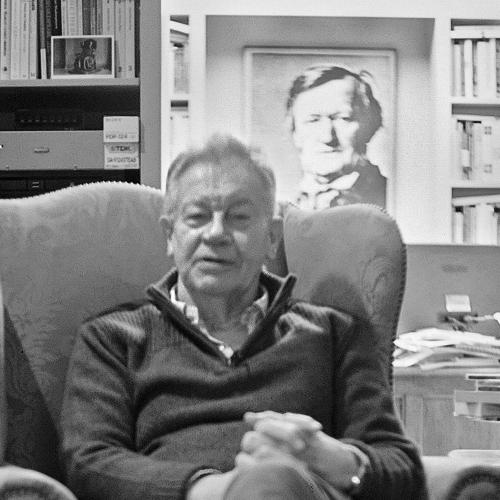COMPOSERS: Beethoven,Bruckner
LABELS: EuroArts
ALBUM TITLE: Beethoven, Bruckner
WORKS: Piano Concerto No.3; Symphony No. 7
PERFORMER: Alfred Brendel (piano); Lucerne Festival Orchestra/Claudio Abbado
CATALOGUE NO: 2054649
Any lover of great orchestral music making will want this DVD, for it shows Claudio Abbado (who looks more healthy each year since his recovery from cancer in 2000) collaborating with a collection of players who go to Lucerne specifically to play together and with, rather than under, him. The first of two items in this programme, Beethoven’s Third Piano Concerto, is not quite this ensemble at its best, because the soloist Alfred Brendel delivers a clipped, rather dry performance which contrasts too much, or in the wrong way, with the give and take of the orchestra. Still, there is much to treasure there.
But it is in the main item, Bruckner’s Seventh Symphony, that we have a sustained impression of the full glory of these occasions. The players really are like a vast chamber group (they include two major string quartets, and many star soloists) who are welded together by the increasingly ecstatic Abbado into an ensemble that gives as moving an account of this sublime work as any I have heard; indeed, in playing the last two movements with such conviction, this performance goes beyond any other. Yet one can’t help feeling that it’s in the first two movements that the splendour of the sound and the exaltation of this work reach the limit of what a sensitive listener can bear. The climax of the slow movement, the great elegy for and apotheosis of Wagner, is genuinely awe-inspiring, with the (optional) cymbal clash capping as great a build-up as I have ever heard. Michael Tanner
Beethoven, Bruckner: Piano Concerto No.3; Symphony No. 7
Any lover of great orchestral music making will want this DVD, for it shows Claudio Abbado (who looks more healthy each year since his recovery from cancer in 2000) collaborating with a collection of players who go to Lucerne specifically to play together and with, rather than under, him. The first of two items in this programme, Beethoven’s Third Piano Concerto, is not quite this ensemble at its best, because the soloist Alfred Brendel delivers a clipped, rather dry performance which contrasts too much, or in the wrong way, with the give and take of the orchestra.
Our rating
5
Published: January 20, 2012 at 4:00 pm
